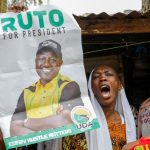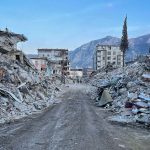The world’s richest 1% emitted as much carbon-dioxide emissions as the poorest two-thirds of the planet’s population, a new report by Oxfam claims.
Carbon emission of the richest 1% soared to 16% of the world’s total in 2019, which is the same amount produced by the poorest five billion people.
Chiara Liguori, senior climate justice policy adviser at Oxfam, said the super-rich are “plundering the planet” while the poor pay the price.
“The huge scale of climate inequality revealed in the report highlights how the two crises are inextricably linked – fuelling one another – and the urgent need to ensure the rising costs of climate change fall on those most responsible and able to pay,” she said.
Oxfam’s report, based on research with the Stockholm Environment Institute (SEI), assessed the consumption emissions of different income groups.
The study’s findings highlight the gap between the carbon footprints of the super-rich, whose lifestyles and investments in fossil fuels are carbon-heavy, and the rest of the world.
“The gap between the super-rich and the rest of us is stark,” Ms Liguori said.
Glasgow City Council makes almost £500,000 from LEZ fines
Italy’s extreme drought mirrors climate in Ethiopia as climate change creates ‘whiplash’ of extremes
Australia agrees ‘groundbreaking’ climate pact to offer displaced Tuvalu residents refuge
Read more:
‘Near certainty’ 2023 will be Earth’s hottest year on record
How UK North Sea platforms are losing energy that could power a whole city
“It would take about 1,500 years for someone in the bottom 99% to produce as much carbon as the richest billionaires do in a year. This is fundamentally unfair.”
She added governments globally, including the UK, need to tackle inequality and climate change by “targeting the excessive emissions” of the super-rich by taxing them more.
“This would raise much-needed revenue that could be directed to a range of vital social spending needs, including a fair switch to clean, renewable energy as well as fulfilling our international commitments to support communities who are already bearing the brunt of the climate crisis.”






















